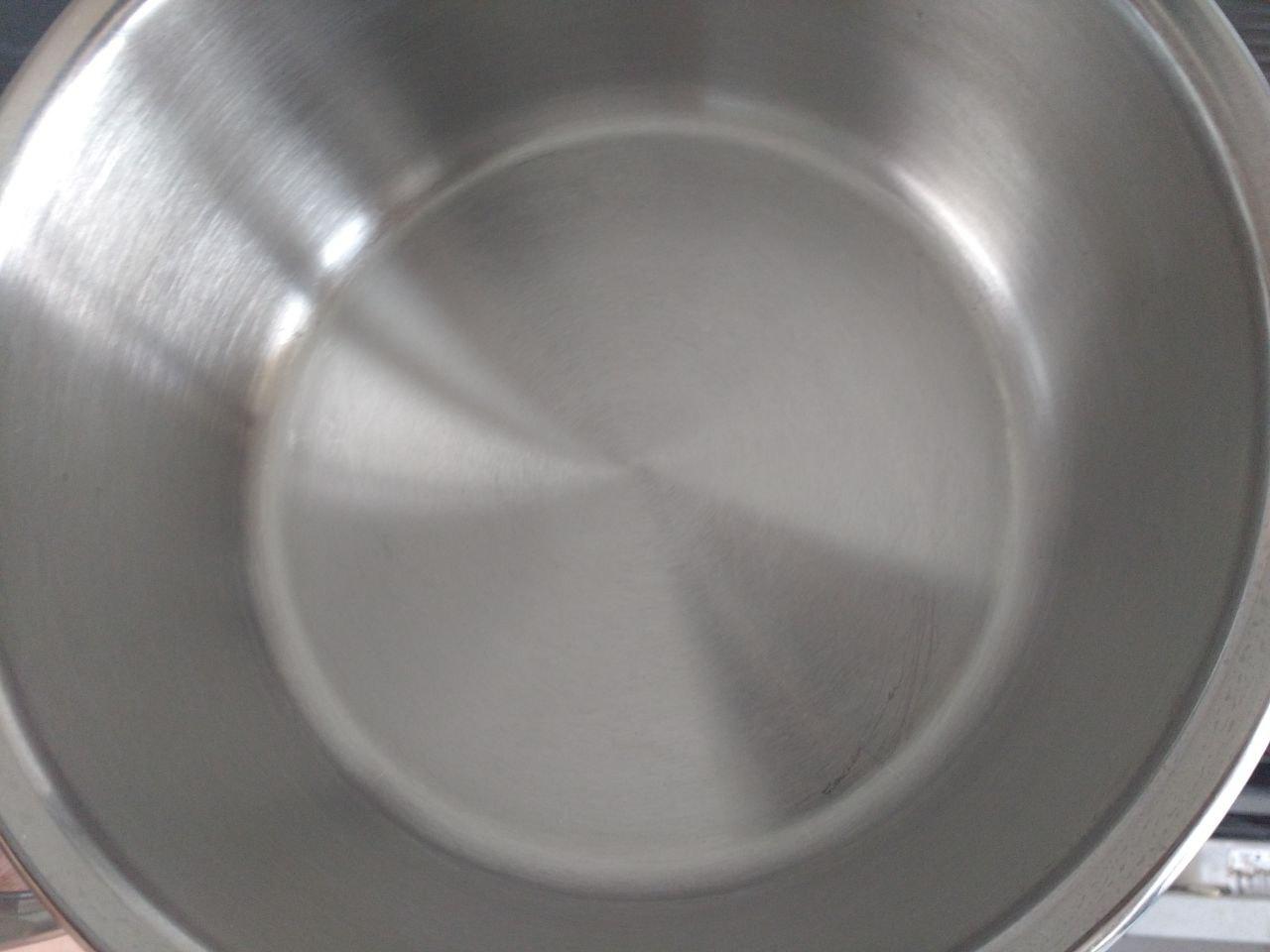My glass cooktop cleaner has abrasive materials and other components which are very effective when cleaning the hob: grease, burnt and solid stuff...
I thought this could be used to clean and polish pots too. I tried with an old pot and the results look amazing (I didn't take a picture before, but it didn't look like that at all):
The question is: is it safe to use?
While rubbing I could see the abrasive material's effect: once the grease and rust was gone the cloth started becoming gray like the pot, presumably from the steel particles that were being removed. I made sure to clean it up a couple of times with water and soap to remove all those particles, so I guess that would not be a problem. But maybe other components could damage the pot in the long term, or worse, be unsafe for cooking?
Update (ingredients)
- <5% Nonionic surfactants
- Perfumes
- Limonene
- Benzisothiazolinone
- Methylchloroisothiazolinone
- Methylisothiazolinone
- 2-bromo-2-nitropropane-1.3-diol
The sticker literally says "Among other things", so I hope they are harmless if they are allowed to omit them. :-D

